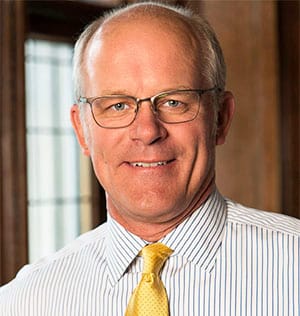Whenever I visit a congregation and notice that communion is part of the liturgy, I get curious about the language that welcomes people to the meal. The bulletin often includes carefully worded phrasing — a sign that somebody took the trouble to make sure the congregation’s hospitality is appropriately aligned with its theological understanding.
Last year, I visited a church where this sentence appeared in the bulletin: “If you are baptized and believe in Jesus Christ, you are invited to commune with us.” While that’s more generous language than many churches manage, it still sounds like gatekeeping — it’s permission-oriented. The if is a big fat notice of conditional eligibility.
A 52-year-old man in my congregation discovered from conversation with his mother, after years and years of communing in our church, that he’d never been baptized, much to his surprise. While his baptism became a joy to plan, there are surely numbers of others in the same congregation in the same unknowing situation. Should he and they repent for having ever communed as unbaptized people? Should the congregation repent for having let it happen? And what if the existence of belief in the Lord isn’t an either/or proposition for a lot of people but more like a lifelong pursuit?
The “commune with us” language suggests that an in-group exists apart from everybody else who comes in the door. But isn’t everybody a guest in the house and at the table of the Lord? What feels like doctrinal conscientiousness on the inside can often look like clubbiness on the outside — a look that’s never done any favors for the church.
In every tradition, there are those who grow nervous if they sense the church seems too open with its eucharistic hospitality or too casual with its teaching around baptism and repentance. When access to grace looks too convenient, some get uneasy. Letting a person commune who hasn’t been properly instructed on the full meaning of the meal or on every particularity of baptism might strike them as dangerous.
But what if experience and practice precede belief, rather than the other way around? There’s a lot about faith and life that we come to trust, believe, and understand only after we’ve experienced different things. No advance instruction or rules, for example, will cause a person to fall in love, make friends, or enjoy the taste of fish. Yet firsthand experience with each endeavor, especially spread out over time, may make a believer out of their newfound joy in discovering love, friendship, and good seafood.
Perhaps our belief-centric approach to all things sacramental has shortcomings when it becomes the primary measure of our spiritual personhood. Biblical scholar James Sanders suggests that while Jews embraced the ethos (way of life) from the Torah, Christians embraced the mythos (story). As Christianity developed, it often emphasized following a set of beliefs over practicing them as a way of life.
I have no idea if the 29-year-old twin brothers in my congregation, whose parents push their wheelchairs forward for communion, “believe in Jesus.” Their cerebral palsy is too severe for me to make meaning of the sounds they speak. But I place the wine-soaked bread in their mouths nonetheless. “Love is or it ain’t,” writes Toni Morrison. “Thin love ain’t love at all.”
Maybe it’s time we start seeing the Eucharist as Christ doling out thick love to all God’s people, whether their belief is sturdy, shaky, or very much unformed.
About the author: Peter W. Marty is editor/publisher of The Christian Century and senior pastor of St. Paul Lutheran Church in Davenport, Iowa.







